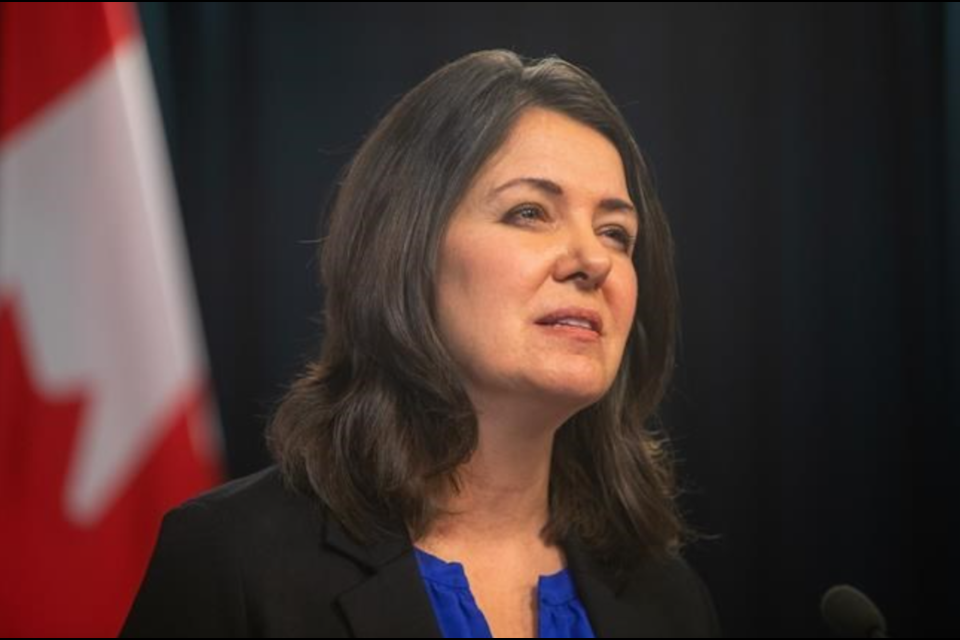LAKELAND - A wave of financial increases in payments is scheduled to begin in the coming months for Albertans with families, seniors and individuals with disabilities.
Part of the province's $2.8 billion Affordability Action Plan aiming to support Albertans experiencing rising costs due to inflation will address benefits “to help make life more affordable and ensure all Albertans can afford the rising costs of life’s necessities,” said Premier Danielle Smith on Nov. 28.
The first wave of support will include a six per cent adjustment to Assured Income for the Severely Handicapped (AISH), seniors benefits, income support and Alberta Child and Family Benefits, as a means to adjust to the cost of living, said Matt Jones, Minister of Affordability and Utilities.
“This announcement, to index the core support programs that low-income families, seniors and vulnerable Albertans rely on, is an important part of our Affordability Action Plan. In addition, recipients of these programs will be eligible for temporary targeted support payments to address the current cost of living and inflationary pressures,” he said.
Increased funding
The payments will officially begin on Jan. 1, 2023, but AISH and Income Support recipients can expect a pay increase on their Dec. 22 cheques. The increases will see AISH recipients receive $1,787 a month, compared to the previous amount of $1,685. Seniors previously receiving $286 per month will now receive $303. Additionally, low-income families eligible for the Alberta Child and Family Benefit subsidy will receive $120 for one child, $198 for two, $260 for three and $307 for four, according to the province.
The increases translate to a $260 million total investment, carrying through until the 2024 fiscal year. Over three-quarters of the funds are expected to directly support AISH, seniors and Income Support recipients.
‘Not enough’
While the increase is welcome, for some of the 72,000 Albertans receiving AISH payments included in the program, it's not enough, said Shauna Quintal, Lac La Biche Disability Services Executive Director.
“I’m definitely happy that they're getting an increase because they could definitely use the money. But at the same time there’s a lot of issues in the sector,” she says, noting many disabled individuals already live below or close to the poverty line.
“The way I see it, people on AISH live in poverty. And as an agency supporting them, we’ve had to be very creative to make it affordable,” which includes finding suitable co-living situations and budgeting with individuals in the Lac La Biche area receiving AISH, said Quintal
The local agency provides support to individuals on the disability spectrum, and offers solutions to achieving personal goals, accessing outreach services and other resources to promote a better quality of life.
Throughout the year, the non-profit organization receives provincial funding alongside other supports to provide services. Quintal says the Affordability Action Plan announced last month is not addressing the larger problem.
“It’s never quite enough. Yes, it’s great. But it’s not enough to really make a difference,” she said, adding the challenges are sometimes greater in rural settings where there aren’t sophisticated public transportation systems or opportunities for low-income earners to access discounted prices for goods and services.
Over the last 12 months, Statistics Canada Consumer Price Index (CPI) indicated grocery store food purchases went up 11.7 per cent, while rent increased by 2.5 per cent in Alberta.
Making ends meet
Quintal says many of the individuals who earn AISH and utilize the local agency do not have access to the same luxuries as others, such as living alone.
“Most of our folks live with roommates, whether it’s an ideal match or not, they make the most of it,” she explains. “They have to be creative on how they spend their money.”
She says many discussions with clients at the centre involve making tough financial decisions.
For most people who are lower income, on AISH or who try to get back into the workforce, they often are “working multiple jobs just to make ends meet,” she says, which can have an impact on relationships and an individual's social health.
Overall, Quintal says she hopes to see funding for vulnerable populations that will give them options in life along with more oversight to ensure individuals utilizing the benefits need it.
“At the end of the day, it’s up to our government to do the right thing and do better for these folks.”
In the coming months, the Affordability Action Plan will be offering rebates for utilities, food banks, and more families, along with more subsidies and reliefs for individual Albertans.
NDP says action is slow
On Dec. 7, Bill 2 the Inflation Relief Statutes Amendment Act that includes the financial supports was introduced and will have to be approved in the Legislature in the coming months. The Act intends to amend four pieces of legislation which include the Financial Administration Act and Personal Income Tax Act. The Act includes a suspension on the13 per cent provincial tax on gasoline from January to June, as well, due to inflation, indexation adjustments for personal income taxes for Albertans are expected to be included.
The same day of the announcement, the official opposition released a statement regarding a lack of information following the first announcement of the Act, which also includes $100 a month over six months for seniors and families with children who make less than $180,000 a year.
“Despite weeks of anticipation, Albertans still don’t have answers to key questions such as when people will receive some of these benefits, in particular, the $100 a month. This provides no certainty whatsoever for families who are struggling and need these extra supports,” said Alberta NDP Finance Critic Shannon Phillips.
Philips also criticized some of the initiatives as being “quite limited in scope, whether we are talking about electricity rebates or the natural gas piece.”



